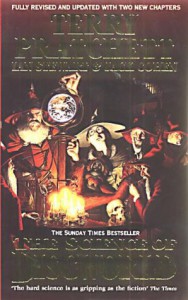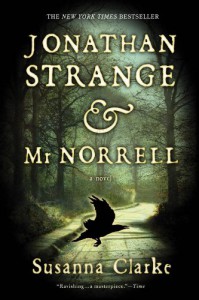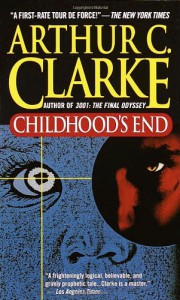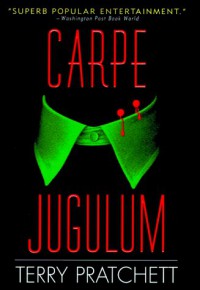Thank you to Spooky’s House of Books for starting this tag, and BookLikes for spreading the word! I thought it was especially cool that Kate from BL staff took the time to answer the Q&A, so check out the link if you missed it.
1. Do you have a certain place in your home for reading?
Most of my reading is done in my reclining loveseat, in the sitting room that adjoins my master bedroom. It's a cozy little area with a fireplace (although I rarely actually use it), lots of windows, and a door leading out onto a small deck.
At night, I usually try to get ready for bed an hour early and then spend that last hour reading in bed.
On warmer days, I like to read on the aforementioned deck and enjoy the fresh air.
2. Bookmark or random piece of paper?
E-reader. ;) I primarily read e-books, so my e-reader remembers my spot for me, even if I read the same book on different devices throughout the day.
3. Can you just stop reading or do you have to stop reading after a chapter / certain number of pages?
I rarely sit down with the intent to read a certain # of pages or chapters. As far as getting to a good stopping point, which I think is how most people are interpreting this question, I’m not terribly particular. My e-reader gives me an estimate of how much time it will take me to reach the end of my current chapter so, if I’m close, and if I have time, I’ll usually stop at the chapter break. Otherwise, I like to aim for a section break.
However, I've frequently stopped at random spots, even mid-sentence. This especially happens if I start getting really sleepy and can’t focus on the words. If I’m just going to sit there reading the same paragraph over and over because I can’t focus on it, then it’s time to put the book down. Regardless of where I stop, I always go back and read the previous paragraph or two when I start back up. That usually helps me get my head back into the story quickly.
4. Do you eat or drink while you read?
I never eat while I read. If I get hungry, I stop reading and usually eat at the computer. I rarely drink while I read, either. If I do have a drink next to me while I’m reading, I usually forget to drink it and then it gets warm and yucky.
5. Multitasking: music or TV while reading?
Sometimes on the weekends I’ll listen to music while I read, as long as it’s something relaxing and not too obtrusive. On weekdays I prefer to read in silence. After being at work all day, where there’s usually a lot of boisterous activity, I’m ready for some peace and quiet.
Reading with the TV on? Never. I get exasperated when I’m trying to read in a hotel room and the neighbor has the TV on. That’s when the headphones usually come out. I know several people who always leave the TV on as a normal part of the background noise in their homes, even when they go to sleep. It’s all about what you’re used to, I guess, but I would go insane in their households.
6. One book at a time or several at once?
Almost always one at a time. I’m not much of a mood reader, so I don’t feel the need for random changes of pace. I just want to immerse myself as fully as possible in whatever my current read is and give it my undivided attention.
I do make some exceptions, though. At the moment, I’m slowly working my way through The Complete Grimm’s Fairy Tales. This book has 211 fairy tales in it, and I’m pretty sure my brain cells would all die if I read that many fairy tales in a row. I just fit them in here and there when I want something short and mindless. I also currently have an audiobook that I’m listening to during my commute. I don’t always do audiobooks, but I found a series that’s working well for me and it has made the Atlanta traffic much more bearable. Since I only listen while I’m commuting, and since it’s impossible for me to read a written book (and stay alive) while I’m driving, I look at them as separate types of entertainment.
7. Reading at home or everywhere?
Normally at home. My reading speed and comprehension is definitely at its best when I’m home with less noise and fewer distractions. (If the cat is sleeping, anyway…) But I do read other places also when I have the time or if I find myself stuck somewhere unexpectedly. Once in a great while I manage to find time to read on my lunch break, and I’ll read while traveling or in waiting rooms.
8. Reading out loud or silently in your head?
Normally, I read silently. Reading out loud would be too slow. However, one thing I learned when taking university classes is that reading out loud can really help me focus on material that isn’t holding my attention. I read aloud a lot when I was reading school textbooks, often in some silly, snooty-sounding accent to help me stay entertained. Ever since discovering that trick, I've occasionally done the same thing with fiction books if I'm having trouble getting through a certain passage, but usually only for a page at most. As you may have gathered, I’m not much of a skimmer; I’m always afraid I’ll miss something important.
9. Do you read ahead or even skip pages?
I never, ever skip pages. Once in a while, if I’m in a particularly tense section of a great book, I might not be able to refrain from allowing my eyes to flick down the page and get the gist of what happens on that page before I read it more thoroughly. I try not to do that, though.
10. Breaking the spine or keeping it like new?
I treat my e-readers with great care. Before e-readers, it depended on the book. If it was a paperback, I usually didn’t worry too much, although I did try to treat them carefully. I treated pretty hardbacks much more gingerly, but it always felt like kind of an annoyance and distraction to me. It’s one large reason why I prefer e-readers so much. I just want to enjoy the story itself, the whole point of reading a book after all, without distraction. I don't need all that touchy-feely-sniffy stuff that some people have going on with their books. ;)
11. Do you write in your books?
I’ll sometimes use the highlighting or note functions in my e-reader if I want to remember something when I write my review. With school textbooks, I usually used flags. That seemed more effective than notes or highlights because I could find them even with the book closed.
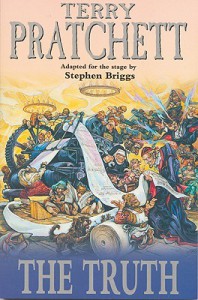
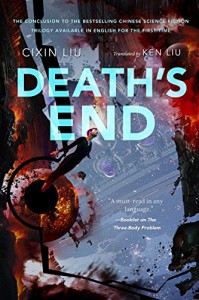
 8
8




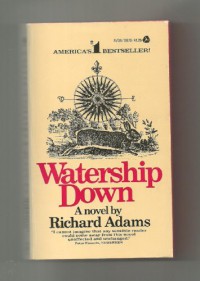
 2
2

